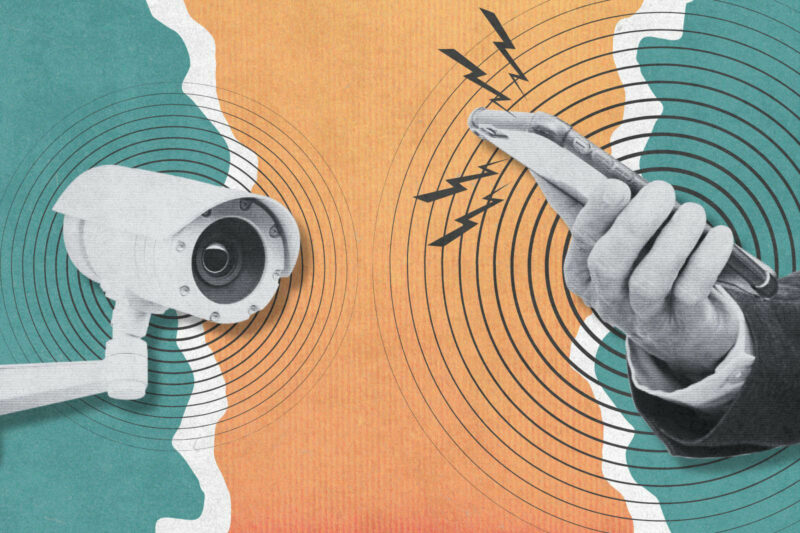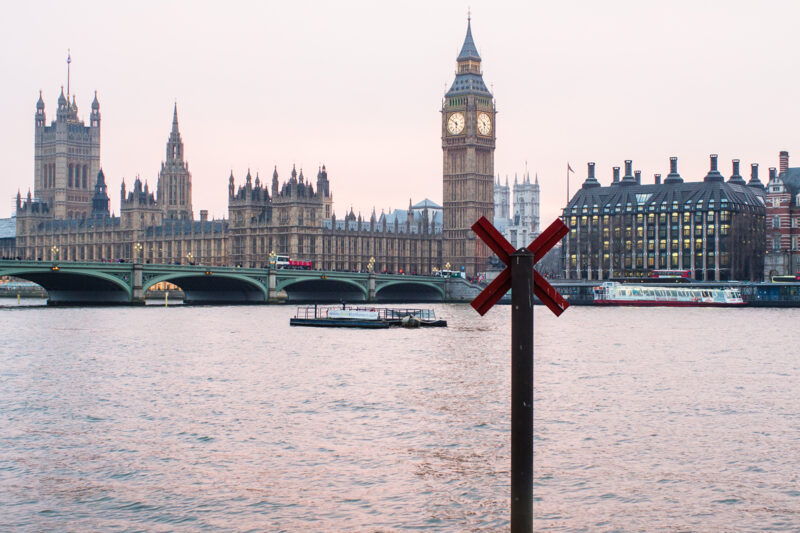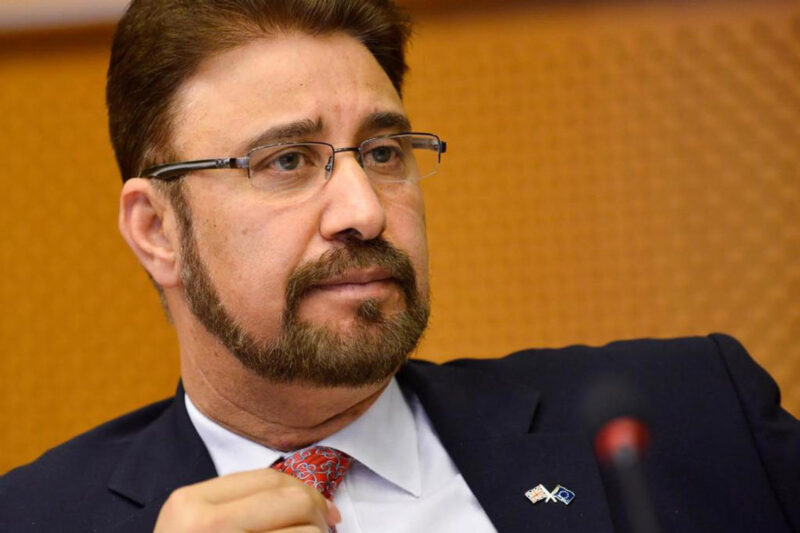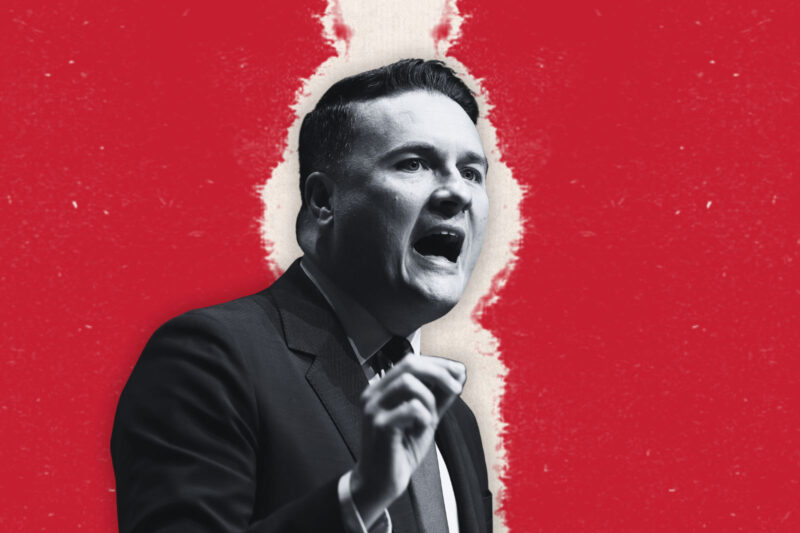Starmer’s most urgent task is restoring order to a nation rocked by racist violence
For a full week far-right mobs have terrorised communities across the UK
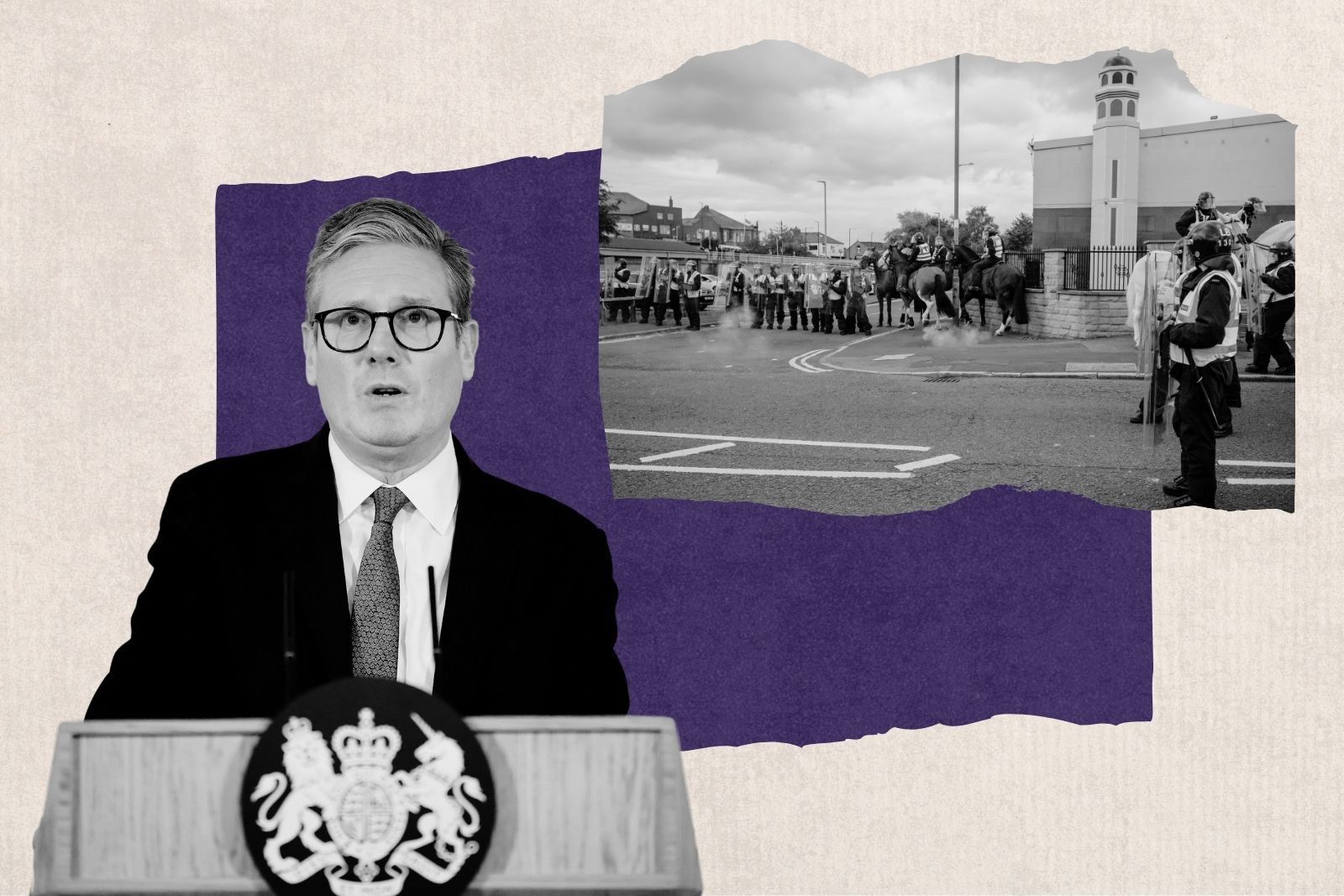
“I lived through the 80s. It was awful and now it feels like we are heading back to that.”
Those were the words of a member of the public I spoke to recently, summing up his feelings watching the far-right riots that have engulfed the country, and what a frightening analysis it is.
For slightly younger people, like myself, the past week has been the first time we have seen racist violence on such a sustained and large scale in the UK. Mosques have been attacked, people of colour have been pulled out of cars and beaten by angry crowds and the destruction of property has been off the charts.
As members of minority ethnic groups, we have, no doubt, all experienced racism. That, unfortunately, is part and parcel of our day-to-day lives. This is different, though. The level of danger feels unprecedented. While we all have our coping mechanisms for dealing with the usual forms of racism these recent events are, for a large proportion of us, new.
Like many others, I have been having conversations with family and friends that I never thought I would need to have in this country. Telling them to avoid certain areas, to avoid going out alone, sometimes to reassess their plans to venture onto the streets at all. As Muslims, we are more often than not visibly different, meaning there is simply no hiding when we’re out in public.
In many ways, the government has been quick to act. Prime Minister Keir Starmer has, so far, chaired two emergency Cobra meetings; helped to coordinate with police to ensure technology and information is shared between different forces to clamp down on the violence; and has now deployed 6,000 specialist officers across the country. At a Downing Street press conference on 1 August, I asked him what he was willing to do to reassure UK Muslims, the community most directly targeted by the riots. He said he would “take every step that is necessary” to ensure we feel safe.
I posted the clip on social media where it quickly gathered more than three million views. Many of the comments were from British Muslims who made it clear that they wanted specific support, not just words.
A few days later, the Home Office did just that, announcing it would provide additional funding so mosques could ask for rapid deployment of security if they feel under threat. I saw this in effect when I attended Friday prayers a few days ago in west London, a handful of officers patrolling the area to ensure worshippers were safe. I had never witnessed anything like it before and, truth be told, it was heartbreaking to know that such measures are now necessary, but all the people I spoke to at the mosque said they were reassured by it.
On Monday, 5 August, I spoke in some detail to Home Secretary Yvette Cooper for ITV News. She signed off the extra police support and was clear in her assessment of the riots, describing them as “racist” and “Islamophobic”.
I asked her why this eruption of far-right violence has occurred now. Following the horrific killings of three young girls on 29 July in Southport, Merseyside, anti-immigration and anti-Muslim sentiment have risen sharply, but the main suspect is neither an immigrant nor a Muslim. Although a significant stream of misinformation was shared online, it was rapidly debunked — and yet the riots have continued.
Cooper told me she thought social media had played a pivotal role in fuelling the unrest, saying it had applied “rocket boosters to extremism”. While that is certainly the case, rhetoric from the political establishment has also had a hand in creating an increasingly febrile atmosphere around matters of race, religion and immigration.
So-called culture wars have dominated our politics for several years now and the former Conservative government is widely viewed as having pushed further and further to the right on immigration during its 14 years in power. Many politicians have long believed that being anti-immigration is a sure-fire vote-winner — Reform UK’s recent success at the general election stands as some testament to that — and, over the years, Labour’s position on the issue has shifted accordingly.
From 1997 to the present day, Labour has gone from being proudly pro-immigration to shifting its position quite dramatically. The party even released a branded mug as part of Ed Miliband’s 2015 election campaign with the phrase “Controls on immigration” plastered on it.
During the recent general election, party sources told me they felt they needed to be stronger on the issue to have any chance of winning. Although Labour pledged to scrap the Rwanda scheme, it repeatedly spoke about returns agreements for asylum seekers whose applications have been turned down, hammering home the age-old idea of sending people “back where they came from”. A slightly different context to the racist remarks so many of us have heard before, but a clear indication of where we are in our discussions on this topic.
It is easy to look backwards, but right now I am sure that every single person who has been affected by the riots wants only one thing: for them to stop. The government is hoping that the large number of arrests, which now stands at more than 400, and quick prosecutions will deter individuals from taking to the streets and causing more chaos. Senior sources have told me they will push for courts to process people as fast as possible and of their desire that the sentences handed down be severe. All of that will add pressure to an already struggling justice system, but restoring order has to be the number one priority now.
 Newsletter
Newsletter


